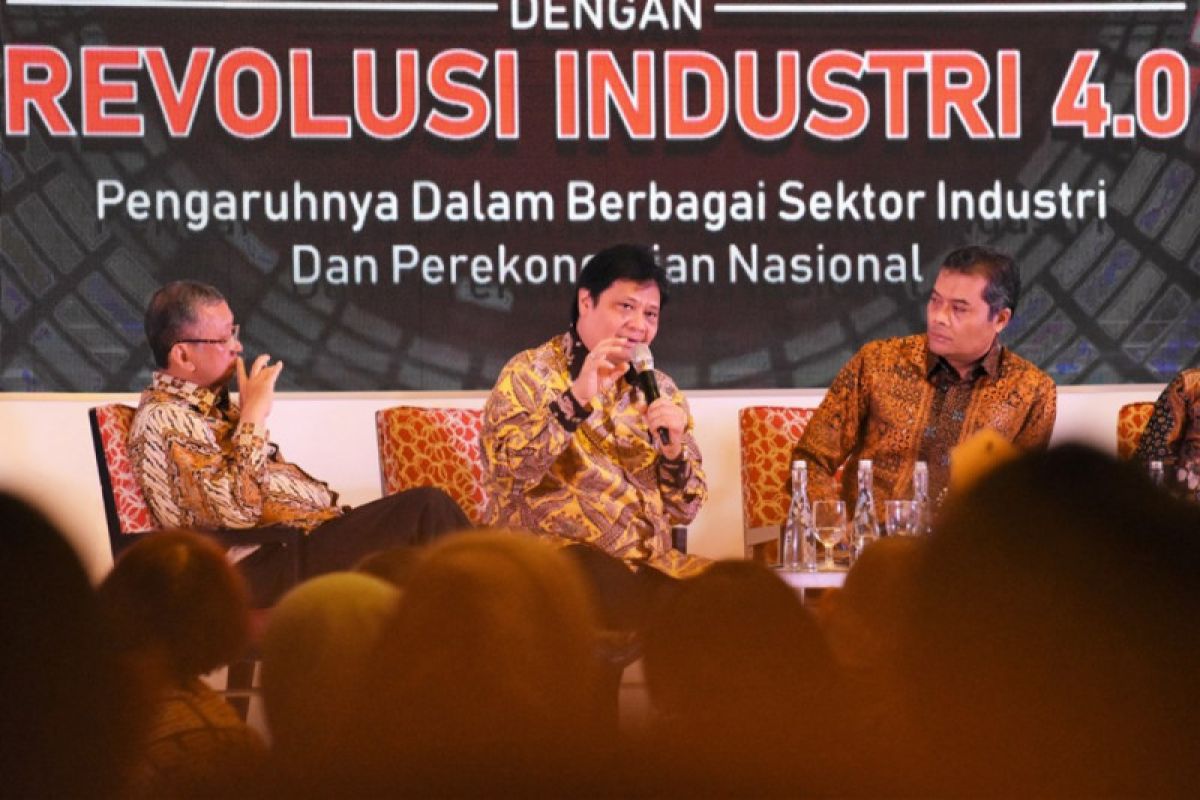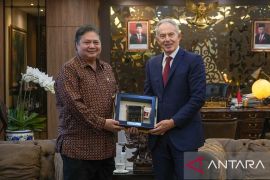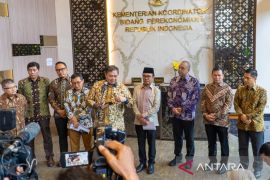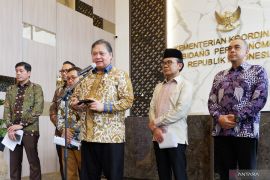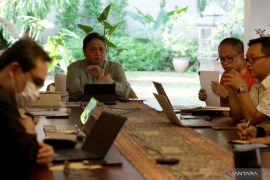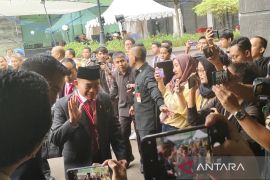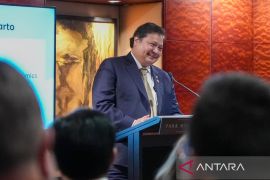In 2019, the target is that 18 new industrial estates would come on stream outside Java . Eight units of industrial estate projects are already under construction and 10 other in the phase of planning.
"By November this year, there are 10 industrial estates in operation outside Java including National Strategic Projects," Industry Minister Airlangga Hartarto said here on Tuesday.
The 10 industrial estates are in Morowali, Bantaeng, Konawe, Palu, Sei Mangkei, Dumai, Ketapang, Gresik, Kendal, and in Banten.
Based on Presidential Regulation No 58 of 2017 on Acceleration of Implementation of National Strategic Projects, there are 23 industrial estates listed as National Strategic Projects.
"Development of Industrial Estates has become high in the agenda of the government as they could create inclusive economy," the Minister said.
The 18 industrial estates to be built and operational in 2019 includes ones in Lhoukseumawe, Ladong, Medan, Tanjung Buton, Landak, Maloy, Tanah Kuning, and Bitung (now under construction) and in Kuala Tanjung, Kemingking, Tanjung Api-api, Gandus, Tanjung Jabung, Tanggamus, Batulicin, Jorong, Buli and Teluk Bintuni (to follow in 2019).
"We hope that there would be a 60 percent increase in the contribution of the manufacturing industry in the non-oil/gas sector outside Java," the Minister said.
Airlangga said industrial estates in Java would be only for certain industries and the ones outside Java would be for natural resources-based processing industries and mineral processing industry.
"The Sei Mangkei and Kuala Tanjung industrial estates would cluster for development of agro and aluminum based industries. Sei Mangle already has crude palm oil processing industry and Kuala Tanjung has Inalum, an aluminum smelter," he cited an an example.
The plan is also part of the program of the Industry Ministry to boost development of downstream industries.
"Inalum, for example, already produces aluminum alloy that could be used by the automotive industry to produce engine blocks," Airlangga said.
The strategic policy is to increase added value of the raw materials in the country to reduce dependence on imports, increase foreign exchange earning from exports and to contribute to domestic supply of manufactured goods. In addition it would deepen the country`s industrial structure.
"For example, in Morowali, we have succeeded in going down stream in nickel industry by processing nickel ore into stainless steel. If we sell nickel in ore we will earn US$40-US$60, but it would be worth more than US$2,000 in stainless steel. We have exported goods valued at US$4 billion from Morowali in hot rolled coil and cold rolled coil to the United States and China,` Airlangga said.
Airlangga said he was confident industrial estate would attract more investment to the country and would open more jobs.
Until November 2018, direct investment in the industrial sector reached Rp70.8 trillion or 27.72 percent of the total capital investment in Indonesia.
In the first half of 2018, there were 17.92 million workers in the industrial sector.
In the era of the government of President Joko Widodo, there were big new investments in the Cilegon cluster such as Posco Krakatau Steel valued at US$3 billion and recently Lotte began with groundbreaking for a US$3.5 billion petrochemical factory in that industrial estate, he said.
"This will give greater confidence for other investors that even in political year big investors like Lotte still embarks on big investment in Indonesia," he said, adding, "that means foreign investors have high confidence in the country`s economy and political stability."
The Minister also said he would facilitate development of polytechnic in the industrial estates to make it easier for companies to recruit skilled and competent workers to keep up with the advancing technology especially with the fourth industrial revolution.
"We already facilitate development of polytechnic of metal industry in Morowali and polytechnic for chemical industry in Cilegon," he said.
The policy to develop and improve the human resource quality is in line with the implementation of Making Indonesia 4.0 and the government priority program next year to be implemented in massive scale in educational and vocational training activities.
Reporting by Sella Panduarsa Gareta, A Saragih
Editing by Andi Abdussalam
Reporter: Antara
Editor: Yosep Hariyadi
Copyright © ANTARA 2018
